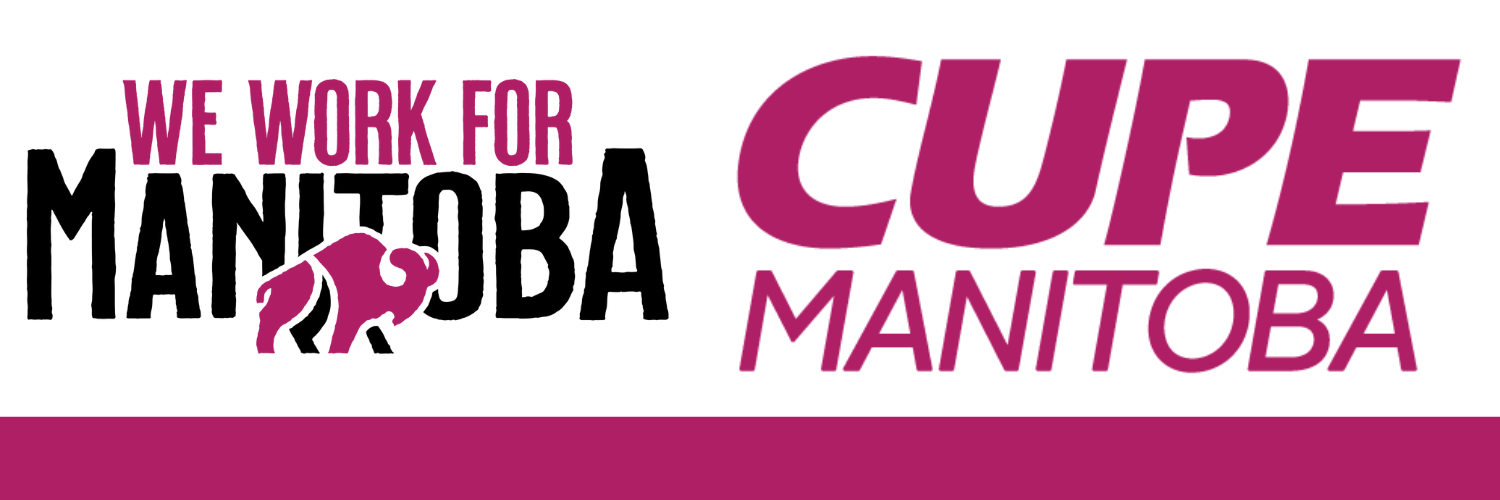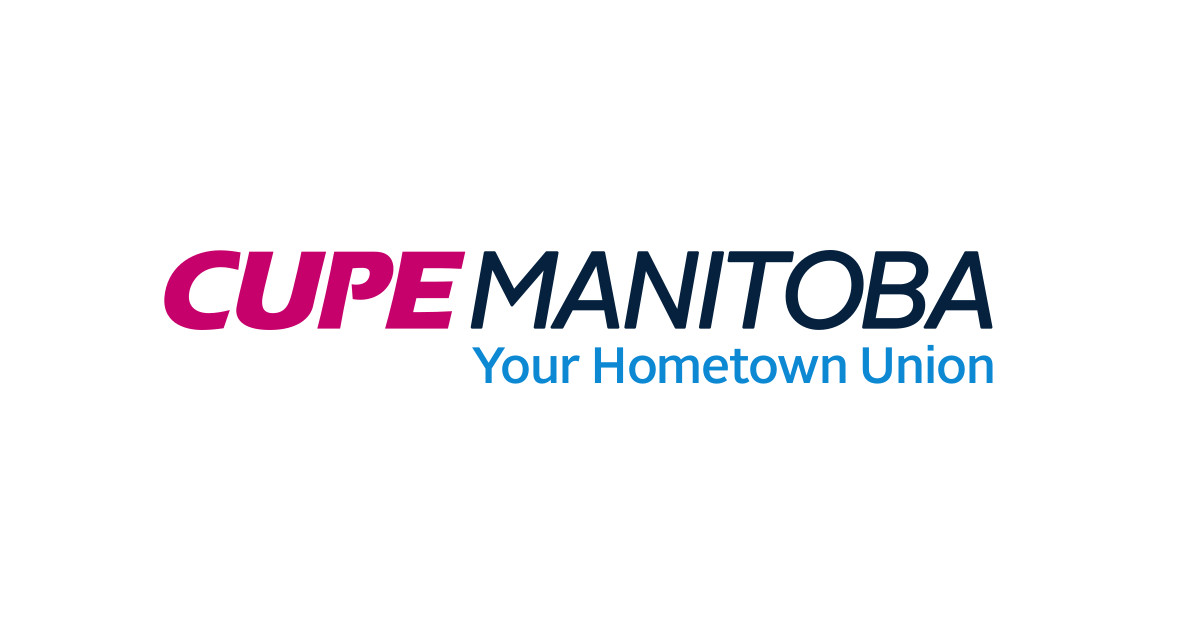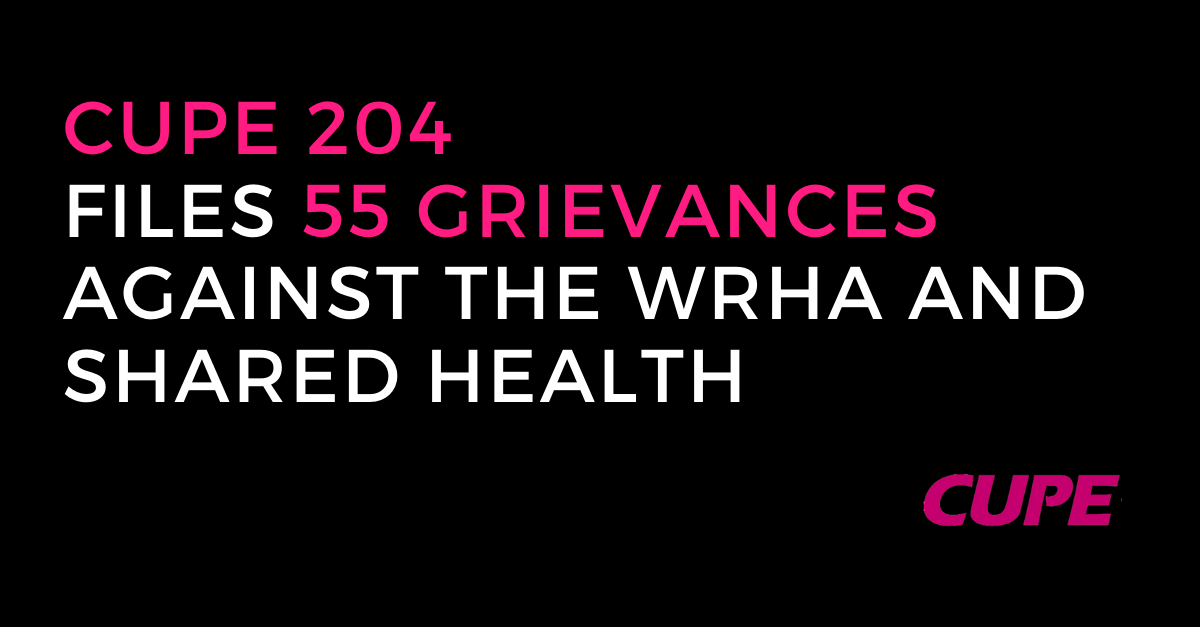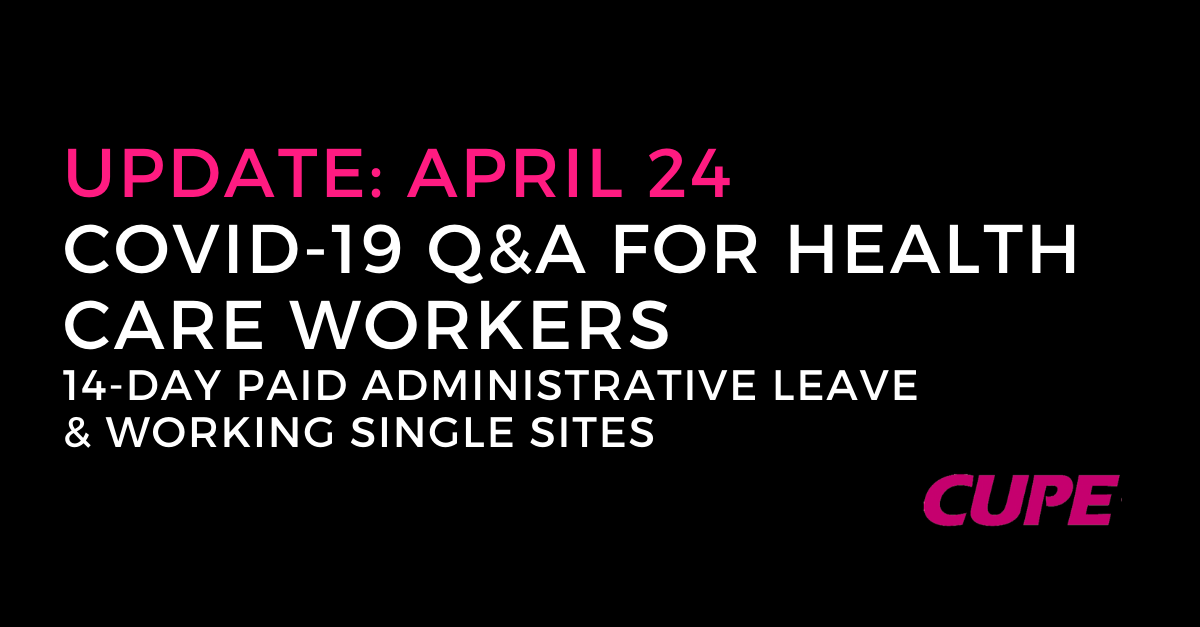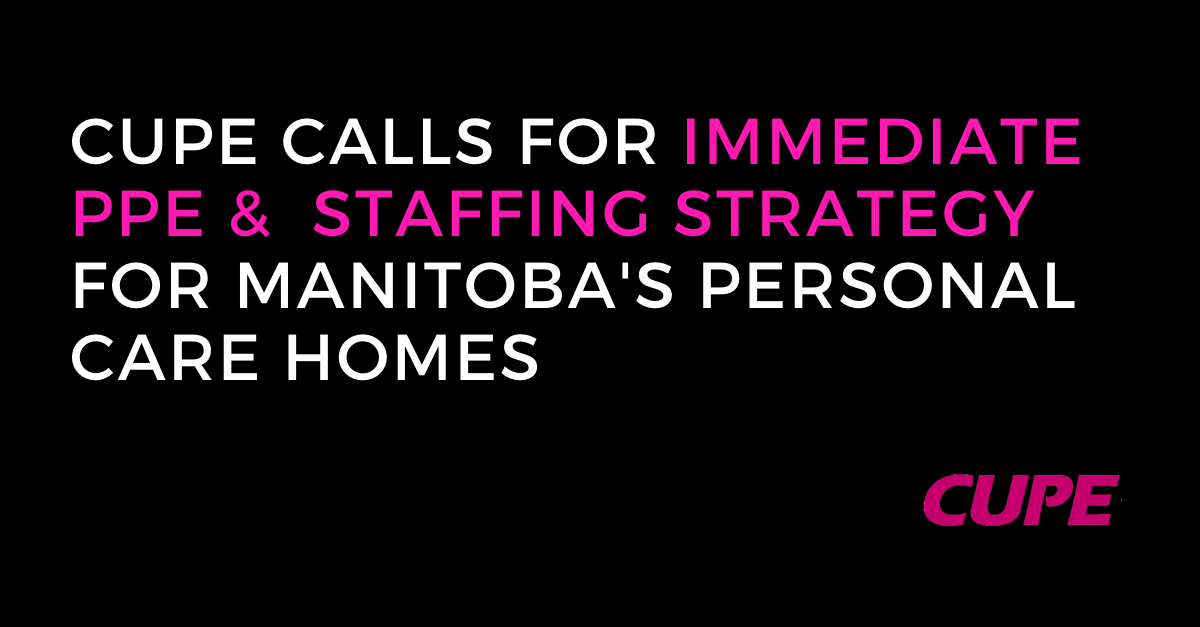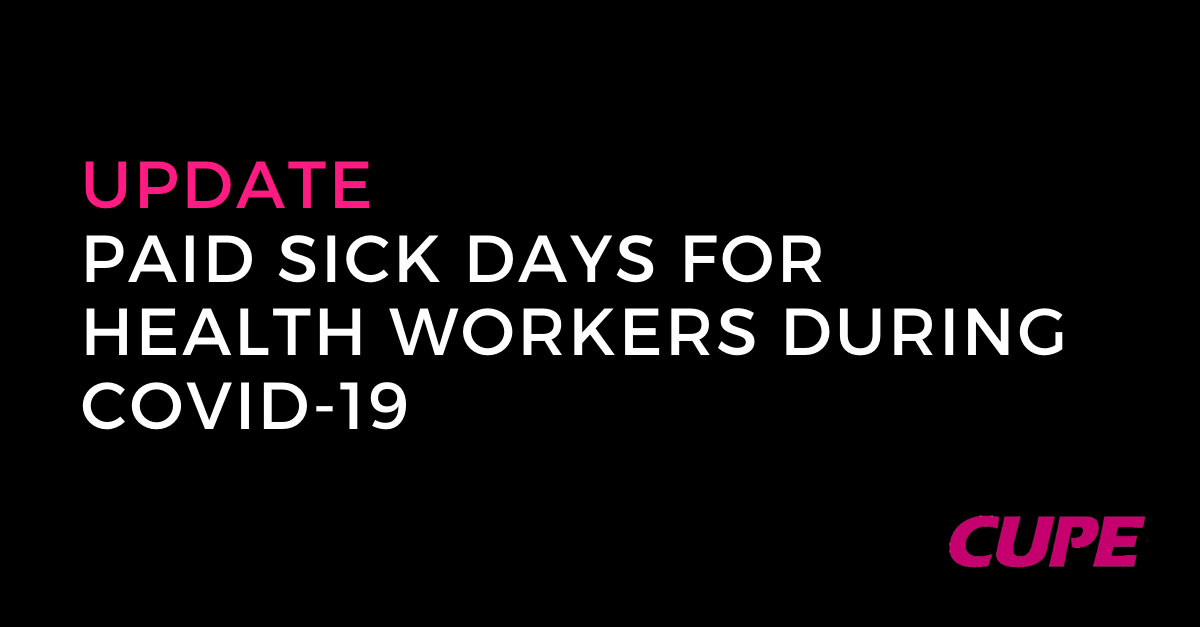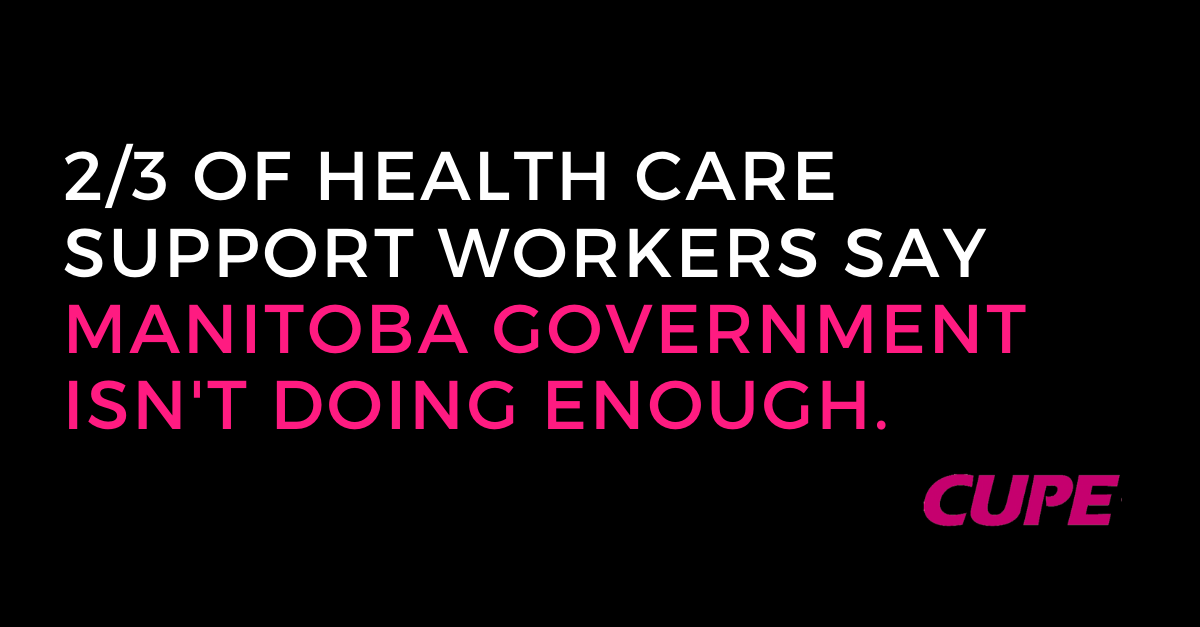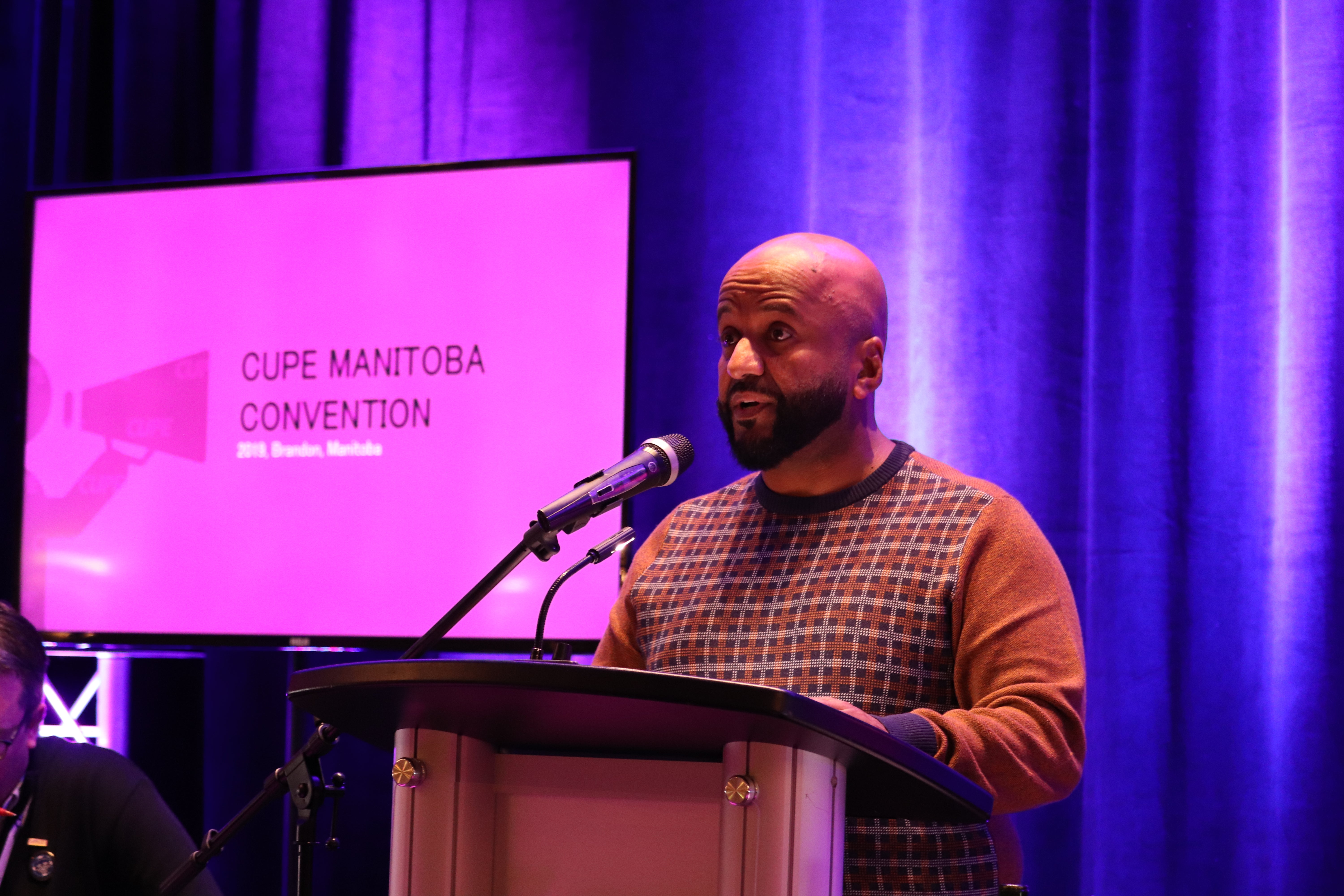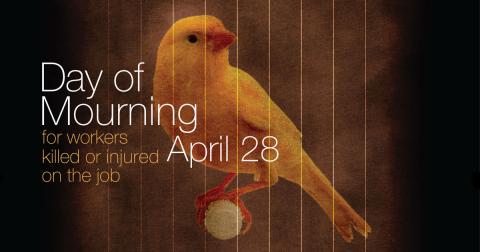The Canadian Union of Public Employees is calling on public health officials, including the Winnipeg Regional Health Authority, to immediately conduct in-person inspections at each private personal care home that currently has COVID-positive cases, and automatically launch inspections for any future outbreaks.
“We need to be proactive and have public officials inspect these privately-operated homes,” says Shannon McAteer, CUPE Health Care Coordinator. “The results of the inspection during the Parkview Place outbreak yielded important findings and recommendations, including staffing and personal protective equipment (PPE) that can help that facility fight the spread of COVID-19, but we cannot let other facilities get to that point.”
CUPE learned on Tuesday, that Maples Personal Care Home, operated by Revera, now has 70 active cases of COVID-19, including seven staff.
“Government and private operators dragged their feet before, and we cannot have a repeat of what happened at Parkview Place,” said McAteer. “We are asking for public health inspectors to immediately conduct in-person reviews at all private care homes with current outbreaks, and automatically launch inspections at future outbreaks to ensure each home is prepared for, and can prevent an outbreak.”
CUPE represents support staff in 10 private personal care homes in Manitoba, including Revera facilities: Parkview Place; Heritage Lodge; Maples Personal Care Home; Charleswood Care Centre; Kildonan Personal Care Centre; Valleyview; and Extendicare facilities: Oakview Place; River East Personal Care Home; Tuxedo Villa; and Hillcrest Place.
